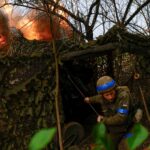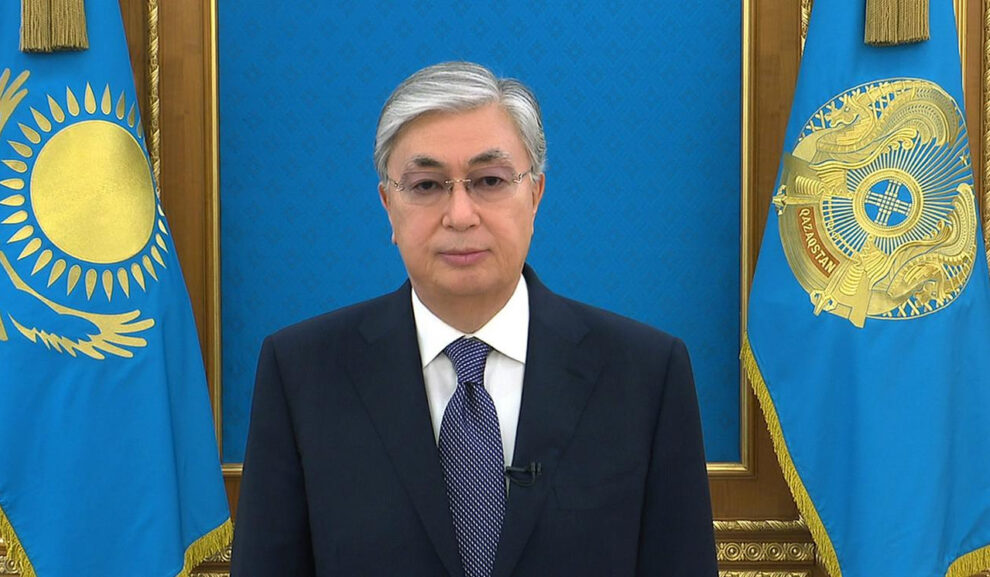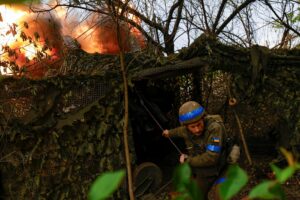For many decades domestic politics in Kazakhstan has pivoted around monolithic state structures, dependent on such a concentrated leadership elite, that outside observers might surmise the country was controlled by family dynasties. In January 2022, the regime faced a number of organized protests which prompted President Tokayev to seek Moscow’s assistance. On 20 November, he ran successfully for re-election with a political landscape very different from the overwhelming, almost devotional, proneness exercised by his predecessor – president Nazarbayev. It was an unusual time in Kazak politics and offered an opportunity for competing interest groups to electorally assert themselves. The President achieved an overwhelming victory amidst complaints of electoral malfeasance from the OSCE and others. However, the election itself did draw attention to alternative voices which had not previously darkened the Kazak electoral stratosphere.
This naturally prompts one to consider if, in such a hierarchical political system, there is further room for genuine cross-cutting electoral cleavages which might (for example) persuade future voters not to opt for one of the three-party “coalitions” of political entities (Amanat, People’s Party and Aqzhol) which essentially represents the President. These “political parties” are quite overtly proxies, a word which is not used either negatively or as a euphemism in Kazakhstan, and instead describes a form of pseudo-democracy which makes it appear that there is voter presence when, in fact, the principal three parties are genuinely a phalanx of President Tokayev. The remaining parties (such as the farmer’s party, Ayul, the Eco-Party and OSDP) scored nominal electoral support. However, their existence, helps sustain illusions of democracy in a state supporting a “one horse race.”
So, are there themes – e.g., the environment, women, disability, LGBTQ demands etc. – that could persuade future Kazakhstan voters to abandon the president? Through a series of interviews with state, political and NGO actors, I looked carefully at the influence of a number of potential cross-cutting cleavages which we might consider to have a salient effect in shaping the political agenda of contemporary Kazakhstan. These include ecological and green issues (noting that a Kazakhstan eco-party contested the election); women’s identity (a women’s party is aspired to in the future); the rights of the disabled (a state policy priority); ethnic minorities (currently represented at various political levels); the journalistic community (largely controlled); and LGBTQ issues (still largely a taboo subject), among other issues of concern.
The Kazakhstan state has shown enormous capacity to incorporate cross-cutting electoral cleavages into its agenda. Like a chameleon, the President and his bureaucrats have shown a capacity to absorb ecological concerns, women’s rights, the disabled community, and to a large extent the journalistic and especially the new media interests into a platform which on the surface looks inclusive. One might be mistaken for believing that it had achieved an astonishing political consensus. Indeed, when the mass media is subject to detailed analysis, only relatively few critical voices remain. These voices face strict censorships laws and risks of litigation. Thus, even in information provision, the state has largely cornered the market, and dissident or alternative voices are few. Perhaps most noticeably, one issue which for various historic and religiously sensitive reasons the state lacks the capacity to absorb is LGBTQ politics. LGBTQ politics are entirely absent from the formal political agenda and the community itself remains largely anonymous and bereft of mainstream representation, even when compared with some of Kazakhstan’s immediate neighbours. However, there is evidence that if the state continues to ignore these issues and exclude the LGBTQ community from civic life, there is the potential for more protests in the future.
President Tokayev became acting president on 20 March 2019 due to the resignation of Nursultan Nazarbayev. The “wobble” experienced in January 2022 as a result of unprecedented political fissures in the Kazakhstan hierarchy, has shown that there is civil society capacity for protest mobilisation. The state has proven quite effective in channelling many of the demands of other interest groups into its programmes and thus diffusing and diluting potential demurral. For various reasons, LGBTQ matters are inherently toxic in a state built upon traditional values. However, the crisis in January was less about cross-cutting political cleavages and more about a power-struggle at the heart of government. Nonetheless, such cleavages do have the capacity to erode the political power-base and the capability of the state to deliver a sense of “feel good”. They can also be exploited by the President’s future rivals.
It is worth summarising the current situation for the LGBTQ community. Same-sex couples are not eligible for legal protections available to opposite-sex married couples. To change gender, “patients” must receive a diagnosis of “gender identity disorder” involving medical tests and a psychiatric evaluation. In 2011, new guidelines allowed change to identity documents only after sex reassignment surgery, physical and psychiatric medical examinations, hormone therapy and sterilization. Additionally, people under 21 are not allowed to change their gender on their official identity documents.
The situation regarding freedom of speech remains disturbing and it constrained the election campaign. Attempts to report homophobic and transphobic violence to police are met with resistance and even hostility. The extent of homophobic abuse in Kazakhstan was highlighted in May 2021 when two organizers of an LGBTQ gathering were mistreated by police and counter-demonstrators in the southern city of Shymkent.
Human Rights Watch (HRW) and several Western diplomatic representatives, including the U.S. and British embassies in Kazakhstan, condemned the May 29 incident in Shymkent, and urged Kazakhstan to give equal rights to sexual minorities. HRW wrote that the Shymkent police’s response, “targeting the activists rather than their attackers — shows just how urgent the need is for better protection of women’s and LGBTQ rights in Kazakhstan today.” Many people in Kazakhstan believe LGBTQ rights is a Western export that threatens family values. Sultan Musakhan, a 26-year-old Kazakh student, says that homophobia in Kazakhstan also stems from “religious beliefs, patriarchal traditions, and the low level of people’s awareness and education.” Aigerim Qusaiynqyzy, a Kazakh social affairs expert, says Kazakhstan fails LGBTQ people’s rights. “The Kazakh parliament and [our] society are not ready to adopt such laws.” Harassment, discrimination, and the threat of violence colour the everyday lives of LGBTQ people in Kazakhstan.
While Kazakhstan decriminalized consensual same-sex conduct in 1998, a climate of homophobia remains. Legal recognition of transgender people has worsened in recent years, with coerced sterilization now a prerequisite. A 2009 survey of nearly 1,000 LGBTQ people conducted by the Soros Foundation-Kazakhstan found that more than 81 per cent of respondents felt that gay and lesbian people, “face disapproval and disrespect from those in the general population.” While the state has the obligation to protect the rights of all people, the Kazakh government’s deafening silence on LGBTQ rights has contributed to the social sanctioning of discrimination against them. In recent years, politicians have invoked “family values,” Kazakhstan’s membership in the Organization of Islamic Cooperation, and the need to maintain the country’s birth rate, as reasons for proposing anti-LGBTQ laws. This may have been the last election when their platform on such volatile subjects was so confident.
Human Rights Watch shows that Kazakhstan’s Centre for Human Rights, which has a specific mandate, has been criticized for failures to provide adequate remedies for those who face discrimination. It is against this backdrop that the adoption of anti-LGBTQ “propaganda” legislation generated such intense fear among LGBTQ individuals. LGBTQ people in Kazakhstan courageously adjust their daily lives to avoid harm or exposure by curtailing their movement and point to what Anara A. (a pseudonym), a trans person in Almaty, described as “a deep sense of alienation – that nothing around you in society is there for you to take part in.” However, the urban LGBTQ community welcomed the electoral criticism of the OSCE statement, and seeks significant change.
International ambitions continue to pulse among Kazakhstan’s political elite. Kazakhstan has played leadership roles in international forums, including as the chair of the Organization for Security and Cooperation in Europe (OSCE) in 2010 and to the UN Human Rights Council in 2012. Human Rights Watch suggests that Kazakhstan’s state structures appear superficially indestructible until the moment internal support collapses, leaving its societal tentacles flailing desperately to reassert control. Few lessons have been learned from the January 2022 experience. So, it may be that LGBTQ politics, bolstered by international support, could prove one of the emerging emotional issues which further threatens state stability. The desistence to inclusivity, regretted by the OSCE statement on the 2022 elections, contain a time-bomb for the new presidential era. Kazakhstan’s LGBTQ community certainly plans to make their disillusionment known to President Tokayev’s post-election regime.
Source : E International















